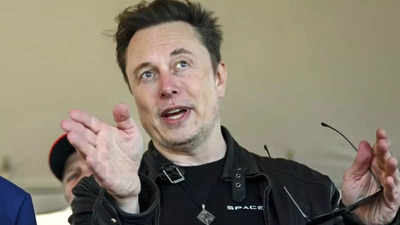Elon Musk has once again sparked conversation around the issue of global population decline, with a simple yet powerful one-word response that reflects his deep concern about the future of humanity. The Tesla CEO retweeted a post on X (formerly Twitter), referencing a graph that projected a significant demographic shift in the coming decades, particularly in China and India, two of the most populous countries in the world.
The graph, originally shared by the Tesla Owners Silicon Valley account, illustrated the projected population changes from 2018 to 2100, showing a drastic population reduction in both countries. The post captioned the graph, “Population collapse is humanity’s greatest threat… Elon Musk,” to which Musk replied with a brief but impactful, “Yes.”
The graph paints a troubling picture: While India’s population is set to decline by roughly 400 million people by 2100, China’s population is expected to plummet by an even more staggering 731 million, dropping to just 731.9 million. Meanwhile, Nigeria’s population is set to soar, with projections showing it overtaking China’s population by the end of the century.
Musk’s concise response underscores his long-standing alarm about the global demographic trends. Over the years, he has warned that population decline, fueled by factors like falling fertility rates, aging populations, and emigration, poses a growing threat to the world’s economy and development.
The global decline: Fertility rates, aging populations, and shifting demographics
Experts have pointed to various factors contributing to the trend, including the decline in fertility rates worldwide. For many countries, the average number of children born per woman has fallen below the 2.1 replacement rate, which is necessary to sustain a stable population. In 2023, England and Wales recorded their lowest fertility rate ever, at just 1.44 children per woman. Globally, fertility rates have halved since 1963, with the average number of children per woman falling from 5.3 to less than 2.5 today.
While countries like India and China are experiencing significant population contractions, other nations like Nigeria, the Democratic Republic of the Congo, and Ethiopia are projected to see their populations swell in the coming decades. Researchers at the University of Washington have suggested that population decline, particularly in countries like China and India, might occur faster than initially expected, raising concerns about labor shortages, economic decline, and societal strain in these regions.
Musk’s vision: Warnings and implications for the future
Musk has been vocal about the potential dangers of a declining global population. In past statements, he has emphasized that the world faces an imminent “population collapse,” which could lead to severe consequences for the global economy and technological advancements. He has also highlighted the need for policies that encourage higher birth rates, especially in aging societies like those in Europe and Japan, where low fertility rates are already impacting economic growth.
The implications of these demographic shifts are immense. As countries like India and China grapple with aging populations and declining birth rates, the global balance of power could shift. Nations with growing populations, such as Nigeria, could find themselves in a position of increasing global influence.
Musk’s concerns aren’t just theoretical. The businessman’s companies, including Tesla and SpaceX, have long been invested in the future of humanity, with Musk advocating for space exploration as a means of securing a sustainable future for the human race. In the context of population decline, Musk sees space exploration as part of a broader strategy to ensure that humanity can thrive long-term.
With Musk’s succinct response to the population projections, the conversation around global demographic decline has been reignited. As world leaders and policymakers grapple with the implications of a shrinking global population, Musk’s alarm over “population collapse” serves as a potent reminder of the urgent challenges humanity faces in the coming century.




